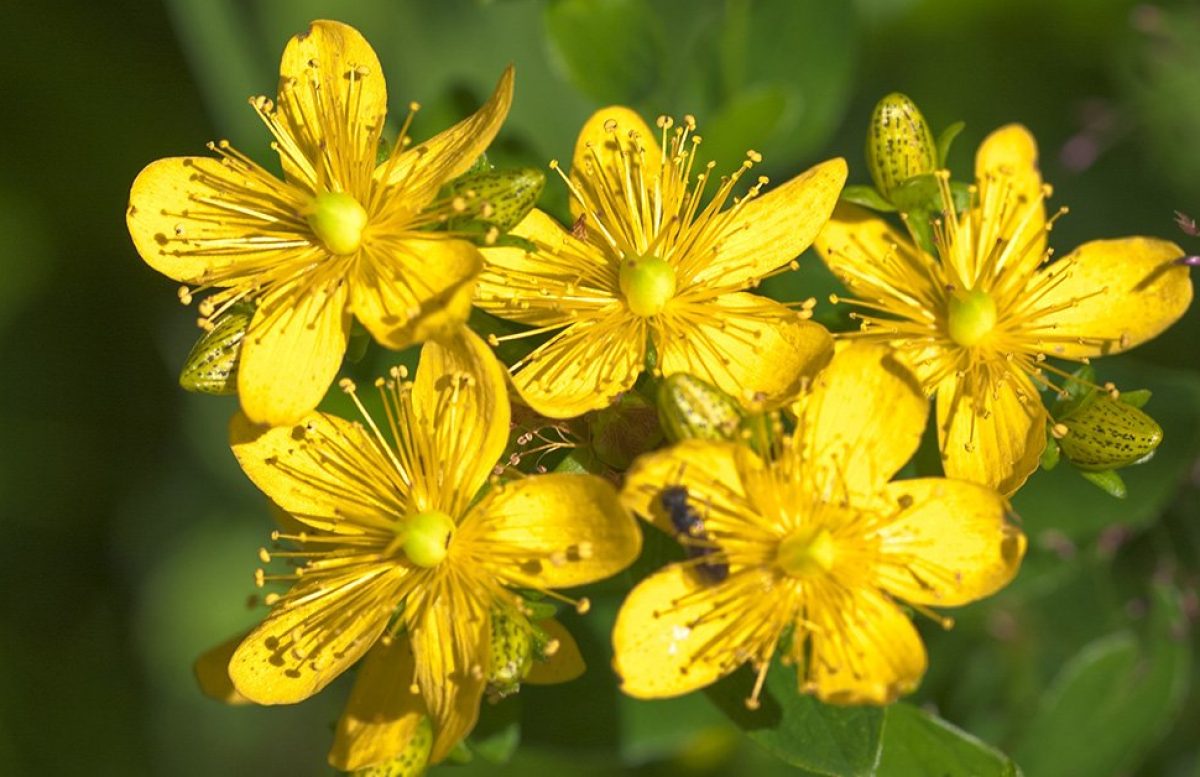Saint John’s wort (Hypericum perforatum) is a herb that has been used for centuries as a natural treatment for a variety of ailments, including depression, anxiety, and sleep disorders. It is native to Europe, but is now found all over the world.
One of the active ingredients in Saint John’s wort is hyperforin, which is thought to be responsible for its antidepressant effects. It is believed to work by inhibiting the reuptake of certain neurotransmitters, such as serotonin, norepinephrine, and dopamine, which play a role in mood regulation.
In addition to its antidepressant effects, Saint John’s wort has also been shown to have anti-anxiety and anti-inflammatory properties. It may also be effective in the treatment of premenstrual syndrome (PMS) and menopause-related mood disorders.
Saint John’s wort is generally considered safe and well-tolerated, with few side effects. However, it can interact with certain medications, including antidepressants, blood thinners, and birth control pills, so it is important to speak with a healthcare provider before taking it.
While Saint John’s wort is often used as a natural alternative to prescription antidepressants, it is important to note that it has not been approved by the FDA for the treatment of depression. However, several studies have shown it to be effective in the treatment of mild to moderate depression, and it may be a useful option for those who prefer a more natural approach to treatment.
In conclusion, Saint John’s wort is a promising herb with a wide range of potential health benefits, including its use as an antidepressant and treatment for anxiety and inflammation. It is generally considered safe, but it is important to speak with a qualified herbalist before taking it, as it can interact with certain medications.
ST. Johns Wort (Hypericum perforatum)
Family: Hypericaceae
Parts Used: Aerial parts in flower
Taste – Sweetness indicates that it has a trophorestorative or tonic action upon the body, specifically in this case with the nervous system. The astringency denotes its common uses as a topical first aid remedy specific for puncture wounds.
Actions
- Nervine Relaxant/sedative – This is the action that is the true action of St. John’s Wort which is often mistakenly listed as an “anti-depressant.” The term “anti-depressant” isn’t actually an herbal action, rather it is saying this herb is good for depression. An herbal action should give you an indication of how a plant will shift our physiology and yet the term anti-depressant doesn’t tell us this, it merely states that the plant is often used for depression. But why is it used for depression? In this case, it is primarily because of its actions upon the nervous system. Nervine relaxant combined with a trophorestorative action makes it an extremely valuable nervous system remedy used for nervous burnout, exhaustion, depression, melancholy, anxiety, nerve pain and a lot more.
- Nervine trophorestorative
- Bitter Tonic – this remedy is not only acting through the digestive system but also the nervous system- thus it has a particular affinity for the neural gut. This indicates it’s use as a remedy to “reset” the intelligence of the digestive system and re-coordinate the complex signaling mechanisms that enable it to operate seamlessly and in a timely manner.
- Analgesic – St. John’s Wort is an anodyne with a specific affinity for the nerves, especially for shooting nerve pains, shingles, and other pains oriented around the nervous system
Affinities:
- Nerves & Spine – I would say this is the predominant affinity for St. John’s Wort as a specific mild nervine sedative, trophorestorative, and Analgesic for nerve pain.
- Digestive System- Here we see this remedy acting upon the stomach itself, balancing its acidity/alkalinity, weakness of the stomach, poor appetite, leaky gut, diarrhea, and uncoordinated digestion.
Energetics: Qualities
- Warming – though it is worth noting that it also has an oiliness to it which does bring a degree of moistening action
- Drying
- Relaxant – quite specific for tension
Vatta specific – Vata dosha because of its relaxant properties combined with warming effects on the temperature
Kapha – It is also beneficial for the treatment of Kapha with its warming and drying properties
Specific Indications:
Entrapped in the darkness and they cannot find the light. They have often lost hope, faith, trust, belief, and the ability of their own willpower and strength to effect change in their lives. The St. John’s Wort person oftentimes lacks a connection to their instinctual self and their ability to trust themselves. This can be seen as a weakness in the solar plexus, or Manipura chakra, (whose color is yellow just like St. John’s Wort flowers), and is typically accompanied by low willpower, self-esteem, confidence, and strength of character. This plant has often been referred to as the sun, shedding the light on depressive feelings (sunshine in a bottle)




